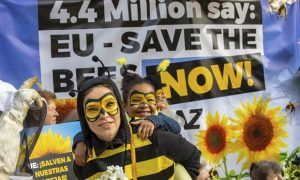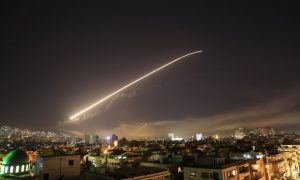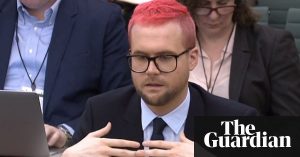At long last the EU has passed legislation to ban neonicotinoid pesticides. The ban should come into place within six months, covers the three main types of neonicotinoids on all outdoor use on crops (but not use in greenhouses or on pets and some other instances) This ban is something a whole raft of environmental groups like Friends of the Earth and Avaaz have campaigned in favour of for many years. At last Michael Gove has reversed UK government opposition to the ban. Similar bans are under consideration in many other countries around the world.
The evidence that these chemicals harm bees has been gathered over many years. What I find staggering is how little research has been done on the effects on human health. Science Daily states that ‘Very little research has been done on their effects on human health’. One recent study indicates that neonicotinoids have endocrine disrupting effects that may be one cause of breast cancer. Clearly more research needs to be done on this, and much else. It is widely known that neonicotinoids change bee’s behaviour and sense of navigation. How might they be affecting human neurological function?
Another issue that has huge, global and as yet largely unstudied ramifications are microplastic particles. These are present in the food we eat, the air we breathe and the water we drink. Larger scale plastic debris has had very much more media coverage over the years, with well documented damage to marine wildlife. Because microplastic particles are essentially invisible they have been largely ignored until recently, yet potentially they pose a serious threat to human health.
Radically reducing the use of both pesticides and plastics is possible. The precautionary principle should be applied. The protection of environmental health, and human health, should be prioritized. A circular economy which reuses and recycles as much of its throughput of materials and energy as possible is the only long term sustainable direction in which to develop the global economy. This recent ban on neonicotinoids is a step in the right direction.



